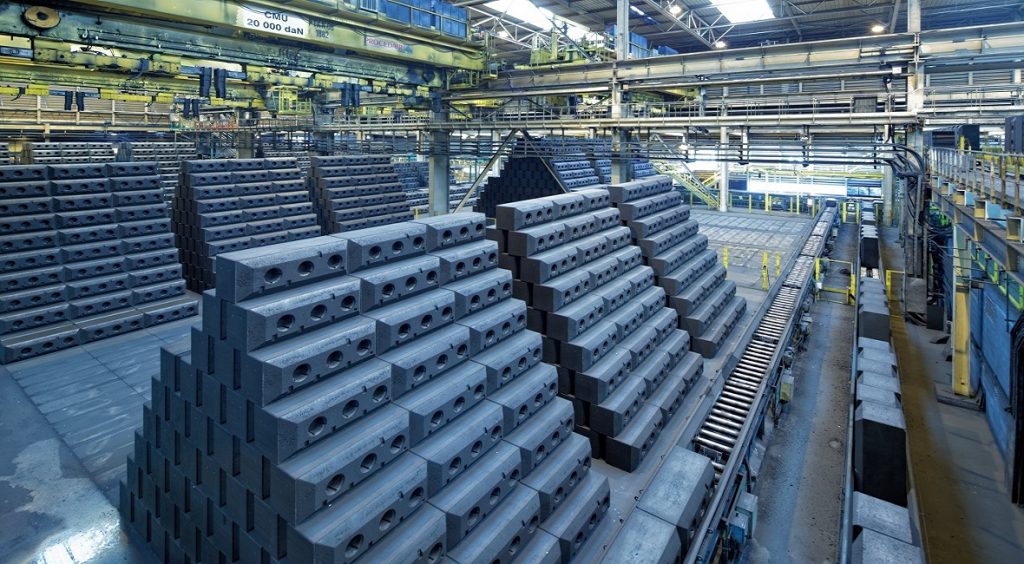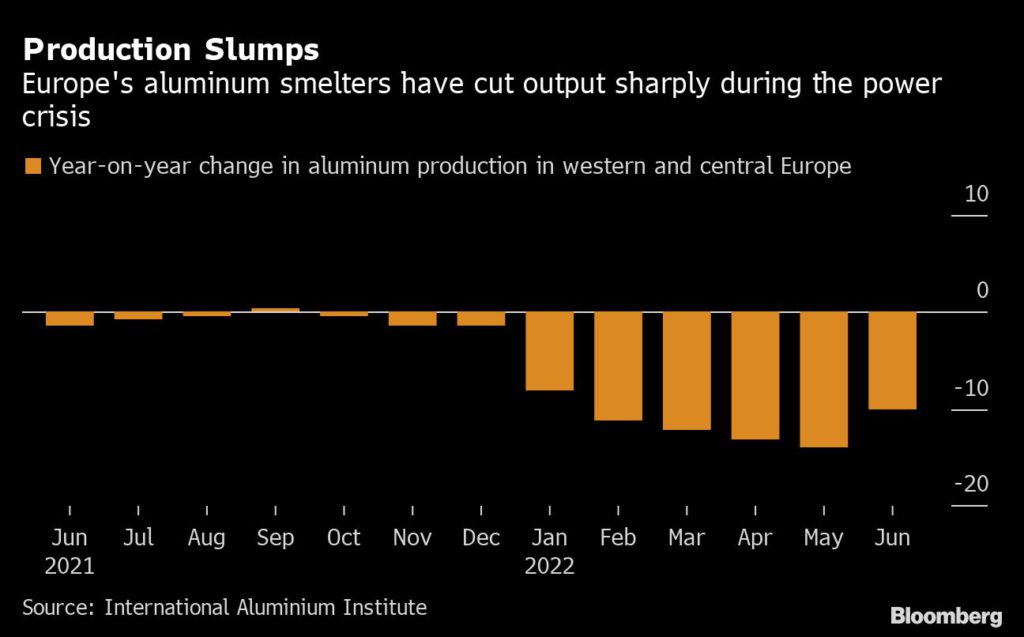Bloomberg News | July 22, 2022

Aluminum Dunkerque in France. (Image courtesy of Rio Tinto)
Norsk Hydro ASA issued a fresh warning over the grave threat that Europe’s energy crunch poses to aluminum supply, saying the heavy slate of production cutbacks seen so far is at risk of doubling over the winter months.

Aluminum is one of the most energy-intensive metals to make, and the surge in power prices already knocked about 900,000 tons of smelting capacity offline in Europe and North America over the past two years, Chief Financial Officer Pal Kildemo said in an interview on Bloomberg Television. With more than a third of smelters globally currently losing money, there’s a risk that another 1 million tons of capacity will be curtailed.
Hydro’s aluminum smelters in Norway are in a comparatively strong position because they’re supplied with captive hydroelectric power, but the company cut production sharply in Slovakia, where surging power prices have made its Slovalco plant highly unprofitable. While the strain on supply caused a spike in aluminum prices on the London Metal Exchange earlier this year, they’ve since fallen sharply as demand worries mount, adding to the strain on smelting margins.
“This is huge for the European aluminum industry, which has become smaller and smaller over the years,” Kildemo said, commenting on the risk of further industry closures. “If we don’t get anything on the regulatory side, and if energy prices don’t fall or LME prices don’t increase, it looks challenging for 2023 for Slovalco.”

While the risks to supply are growing, Kildemo also flagged that the demand outlook is deteriorating fast. Like rival Alcoa Corp., Hydro boosted shareholder returns sharply after a strong second quarter, but Kildemo warned that a five-quarter run of record results could be drawing to a close.
Oslo-based Norsk Hydro has increased its long-term hedging to cover a quarter of its portfolio, and Kildemo said protecting against a further drop is prudent as the risks to demand grow. Aluminum has declined more than 12% this year on the LME.
“I’d be happy for us to lose money on those hedges because that means we’d make money on the rest of the portfolio, but in uncertain markets having something extra on the downside is usually worth more,” he said.
(By Mark Burton and Tom Mackenzie, with assistance from Stephen Treloar)
No comments:
Post a Comment